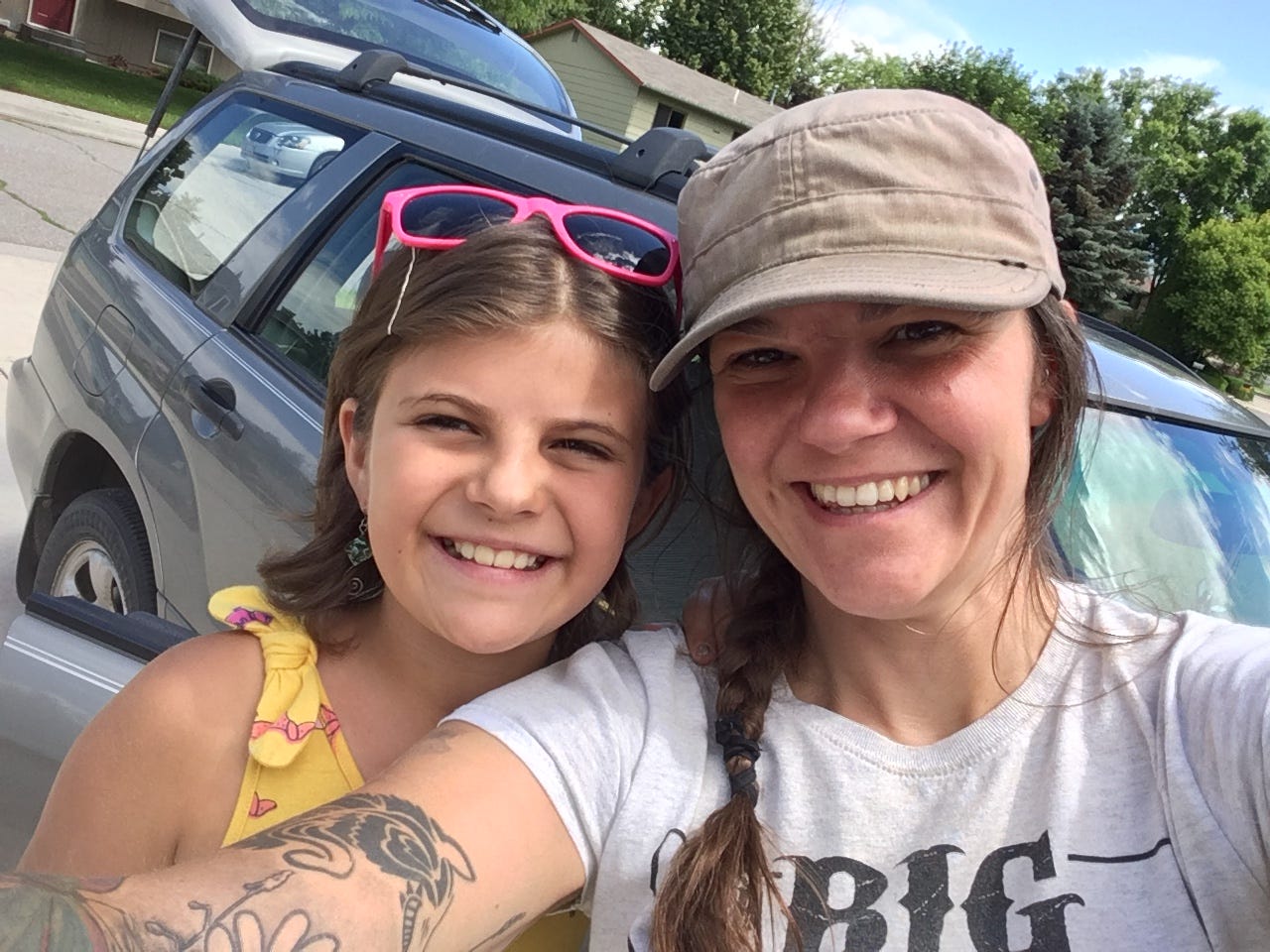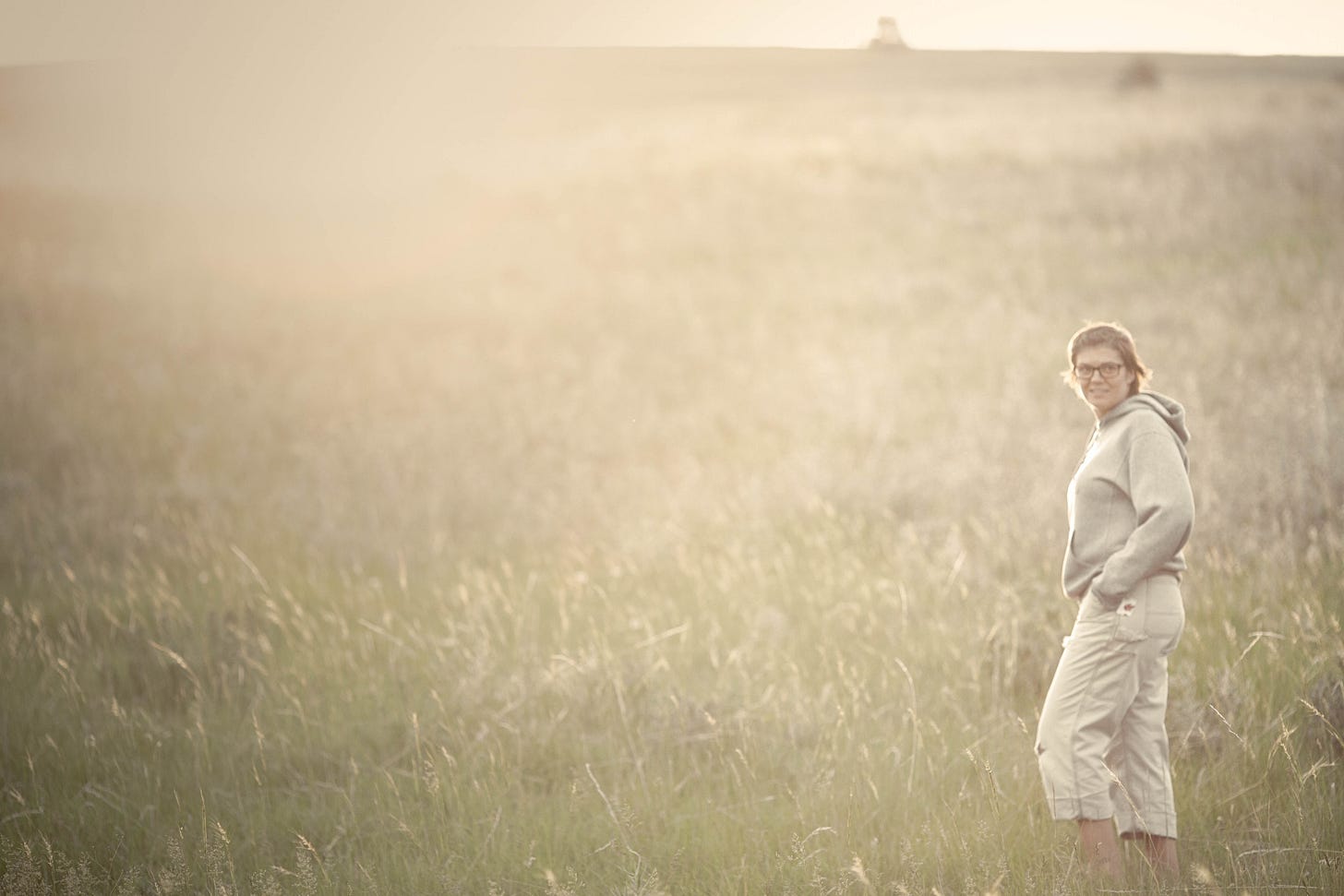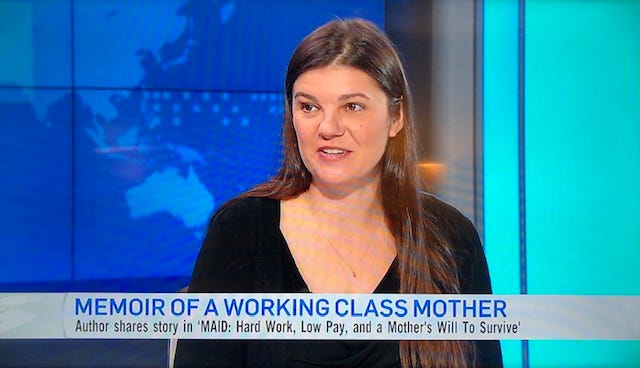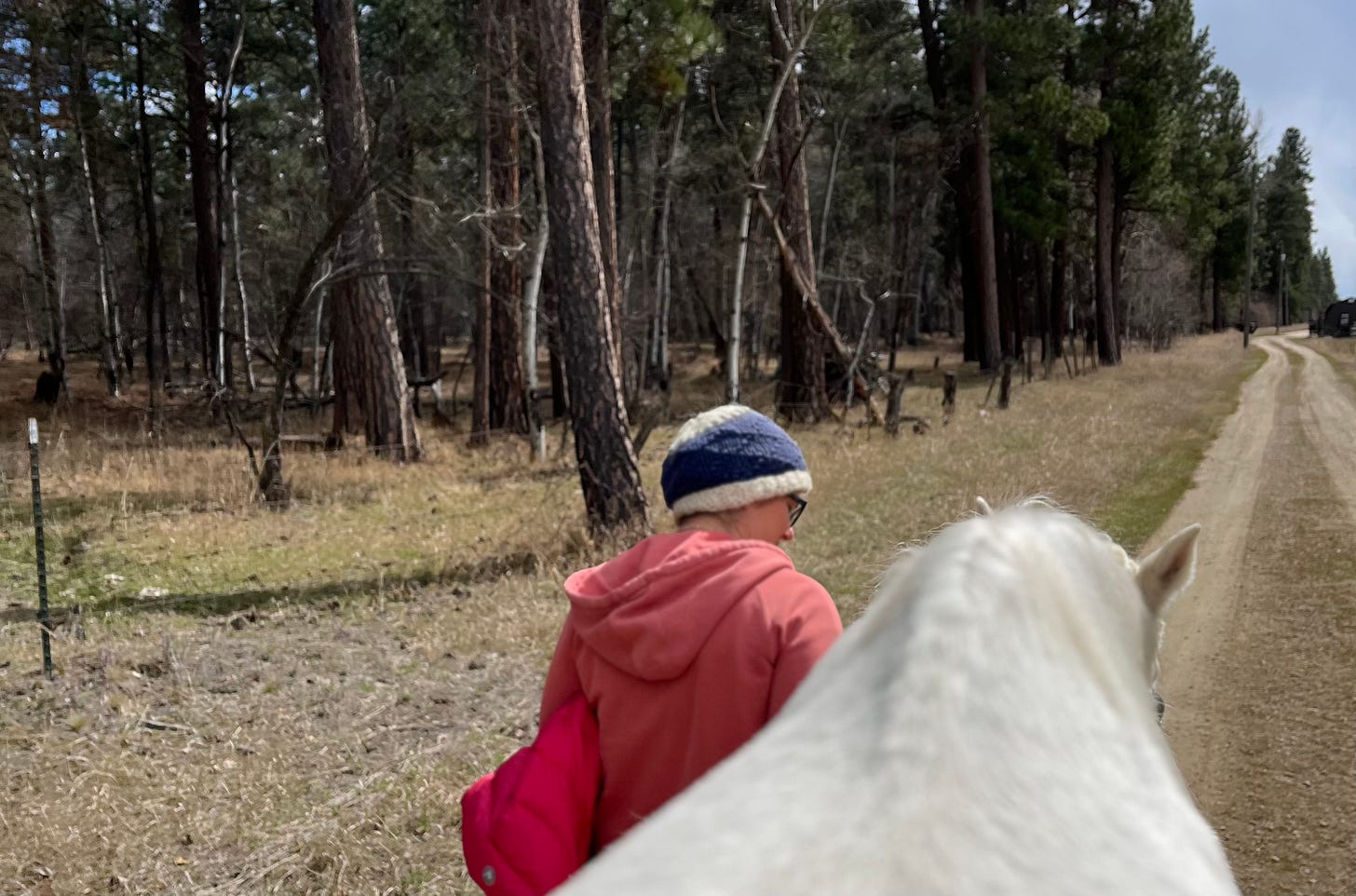My first meeting with the person I would eventually start to refer to as “My Therapist” was five and a half years ago. The longest relationship I’d ever had with a therapist before then was just a couple of months. My therapist and I met soon after I turned 40. A memoir I had written about cleaning houses was due to come out in less than six months. Panic attacks have been a regular part of my life since I was sixteen, but all the book promotion had caused them to hit with a frequency that was overwhelming: one on my way to the airport to speak at a book seller conference where I’d present MAID to a crowded room, another two mornings before that when I had the reoccurring, invasive thought that my dad would sue me, and some just came when they felt like it for no reason.
There was a reason. I knew there was a huge reason. Several months before, after I stopped pretending that my ex hadn’t strangled me a year earlier and kicked him out of the house, I shared a photo on Instagram as a sort of announcement that I was a single mom again. My publisher had a meeting about this post. “I just wish you would have told me first so we could have discussed how we could frame it on your socials,” my then-editor said. This blew my mind. People in New York City, up on some lofty floor in a building across the street from the neon Radio City Music Hall sign, had a meeting that morning to talk about my little Instagram account? I had no idea they paid attention. Now, it felt like they were watching.
A couple of months later, I got a text from my publicist. Or maybe it was an email. Maybe it was both-the email then a text to warn me about the email. Because the email required a trigger warning. I was driving through Mississippi on my way to pick up my oldest daughter from Space Camp in Alabama and pulled over to a gravel parking lot next to a gas station to read it.
A writer who somehow knew my ex had reached out to me after my “I’m a single mom again” post to tell me how relieved she was that I wasn’t with him anymore because she had feared for my safety. These details are fuzzy. I don’t want to go back and read through the messages. But she became incredibly concerned then angry when I said my youngest was staying with him while my daughter and I were down south for the week-long Space Camp. This woman was so outraged, it seemed, that she thought it was necessary to write my publisher a lengthy letter. She told them that, since both of my abusers were still in my children’s lives, I had therefore not escaped domestic violence like my book proclaimed. To her, this made me a fraud.
“Fraud” is a word people like to use a lot in conversations about food stamps. What people think of as fraud, which hovers at a rate of around 7% of all food stamp recipients, is buying lobster and steaks instead of the rice and beans they think poor people should eat. Fraud is buying candy for their kids. It’s selling their food stamps for 50 cents on the dollar so they can buy diapers. People don’t do that very often though. Most don’t want to risk losing the money they receive for food. The government is unforgiving and the consequences are too harsh when the stakes are so high that you fear your children going to bed hungry might lead to someone calling an organization out of concern and Child Protective Services taking them away.
Six months before my first book came out, I had only been off of food stamps for two and a half years. The fear of being found out as a fraud had been so engrained in me that I still thought someone would go through my records somehow and force me to pay back grants they’d given me for food and housing. This wasn’t a stretch. People have made demands over the years that since I wasn’t poor anymore, I should pay back the two churches who gave me a total of about two thousand dollars over two summers to help with rent, student loan payments, and child care. Would people also become motivated enough to tally up how much I had received in government assistance to demand I pay that back too?
As preposterous as this idea sounds, I’m sure a handful of people reading this will nod their heads. I’ve experienced success because I wrote about being poor. To a lot of people, the next step is “giving back” to the communities and programs who helped me get to where I am. It doesn’t matter that I’ve done this. I never shared the receipts and asked for some kind of ticker-tape parade, so they don’t know about it and, I guess, won’t assume that I have. It wouldn’t stop people feeling like they are entitled to my giving back anyway.
Some folks in my small community in Missoula have told me they are entitled to my time, charity, or friendship. After MAID came out, I heard from people who were upset that I didn’t mention them in the Acknowledgments, or hadn’t worked them into the story somehow. An organization I had written pieces for kept making public claims that they had somehow financed and even helped me write my book. On Facebook, below a post I made to thank my single parent friends who’d helped me, Barbara Ehrenreich commented that she was upset I hadn’t thanked her organization as well. “We are very proud of you but feeling a bit unacknowledged,” she wrote. This incessant need people had for me to publicly thank them or give them some kind of credit for helping me wasn’t something I had anticipated being part of publishing my story. Did they not hear me when I said thank you before? Why did it have to be a constant thoroughfare?
In the months leading up to the publication of CLASS, I knew this would be a problem. I’d already heard about the department head at my former college campus who began a meeting one morning by celebrating the announcement of the Netflix series about me, asking how they should use that to get funding for the program they had rejected me from. Their webpage for the MFA program had my name listed as a former student until I asked my assistant to email them and request they remove it.
My therapist was with me through all of this, hearing about it when it happened in real time. She’s talked me through questions on whether or not I was using alcohol to cope too much (I was) and if it was appropriate of me to tell someone no (omg yes). I’ve done video appointments with her from a countless number of hotels. She’s made herself available via text when I’ve been in crisis, and when invasive thoughts or suicidal ideation grew to scary levels that I started to worry about my safety.
At our appointment this week I kept referring to my fear of going out in public as “paranoia” and she gently corrected me more than once. “I just want to stop you from gaslighting yourself,” she said. “This is your reality. This is not paranoia.” She added that I am, or have been, going through a grieving process in recognizing to what extent being a public figure has become my day-to-day existence. I’ve always referred to myself as “an introvert in real life” because my public life has never been what I considered my real life.
This, I later realized, was my brain learning to dissociate. Leaving my children to fly across the country to make public appearances was so traumatizing for me that I started to pretend it wasn’t real. Flying on a plane became my “life in the clouds” where I was Stephanie Land the Author. Where people made sure I arrived on time via a car I didn’t drive. I had to wear different clothes. Everyone seemed to be concerned with whether or not I had a bottle of water and if I was comfortable. Then they wanted to hear about how great everything was going before I sat down and talked to them about the hardest years of my life in achingly vulnerable ways.
Then, I would fly home. I was met by this tall, handsome man who brought endless love and flowers in his arms. This was real. My home was real. There, I was sometimes Stephanie the Mom, and always just plain Stephanie. Dirty floors and unmade beds and hugs and bathtubs filled with toys and soapy water still needing to be drained was real. Running to the grocery store for milk or meeting a friend for dinner and drinks were familiar, and felt as safe as it was to walk through the front door of my house. I could move about my life in Missoula and, honestly, pretend the other one didn’t exist.
After the first miscarriage in December of 2019, I couldn’t function. Things had already started to get weird in my home town after they had announced that they were going to make a Netflix series about me. People started talking to me about it whenever I went out in public. They were happy and excited and I tried to be excited with them. But I just couldn’t sometimes. When I picked up the medication to help my body abort the unviable pregnancy that had perished weeks before, the pharmacy clerk said “Oh my god, are you Stephanie Land?” as she handed me the white paper bag. I went home and sobbed. My chest heaved through guttural sounds for what felt like hours. I had a full schedule of travel for January-including a paperback tour for MAID-and I canceled it all. I kept thinking to myself that I couldn’t be that sad, that devastated, that suicidal, and still do my job. Then the pandemic hit. We had three more miscarriages through that year before I finally told myself “enough.”
I don’t cry in therapy. I don’t know why. Over the years, my therapist has called me out for using humor as a defense, and always points out when she sees that I am getting emotional. I almost cried at our recent appointment though. It was at the very end, after she’d validated that my actions to not go out in public were an appropriate evolutionary response to feeling threatened. I started talking about how it felt never-ending. Like it was all just getting worse. That I couldn’t do the things I wanted to do. The lack of safety I feel in public spaces includes walking to my mailbox, picking my daughter up from school, and going to the barn or other places that have become a refuge. Because of my history with car accidents, some days I’m so anxious that I can’t drive. After they released the trailer for the Netflix series I couldn’t drive for six months.
I sometimes wish it was paranoia. Well, maybe I don’t. Maybe I wish my fears weren’t my reality, but that feels like asking for the same things. I wish I could go get my eyes checked and pick out new glasses without someone grabbing my arm and thanking me for my books. Even when it’s a nice moment, it still robs me of what smidgeon of privacy I had in that space. Now I will wonder if she’ll post about it on social media or tell everyone in the office who I am so they’ll all say something the next time I come in. Most importantly, all the anxiety surrounding that appointment, and the months it took for me to finally call and schedule it, was now valid. It wasn’t a fear that something might happen, it was anticipation that it would.
Since finding out that there’s a group of writers in town who would “love” to take me down, I’m forced to constantly wonder who else they’ve reached out to in the hopes of digging up dirt on me. It's not that I’m worried about them having dirt to find. I feel like I’ve done a pretty good job of broadcasting my dirt for people to examine and discuss. I see Google Alerts for their discussions and online book reviews and posts almost every time I check my email. I know people talk about me. They’ve told me they do.
What I’m worried about are my daughters who are in high school and elementary school. The high schooler who, on a break from school, walked across the street to do some homework at a coffee shop and the person behind the counter boisterously exclaimed “Hey, I know you! I used to get drunk with your mom when she was poor!”
Maybe it’s because of my children that I don’t talk about this publicly. Or, I haven’t made a habit of it in the past. Around the time that MAID was published, if I spoke about the popularity of my book being traumatic for me, people quickly told me to shut up and enjoy it. If I’d had success, the kind of success most people dream of, then it couldn’t be hard. I was living their dreams. All of our dreams. Living out your dreams can’t be a difficult thing. I guess we all couldn’t face that possibility.
Since then, I was always under contract to write and promote a book. I’m not right now. I’m working on a proposal, but I haven’t shown it to anyone that matters. For some reason that gives me a perception of freedom. It would be much worse for me to continue to sit at home and allow myself to grow more and more anxious about the chance that someone might grab my arm (they almost always seem to grab my arm) and talk to me after saying “I know you hate this but.”
I want to be clear that being open about this is not a way to overcome it. This is not me saying “You’re right! I really do have this!” Even my therapist told me that “recovering” from this week will happen months from now, and acknowledged that my body will be in “protection mode” for a while.
This is how I am changing my narrative. This is not paranoia. This is my reality. My reality has become a small group of writers in Missoula, Montana who are messaging people-like ones who have taken our family photos for Christmas cards-in the hopes they’ll offer some dirt, saying they want to “expose” me for “lies.”
To that, well, I say good luck and I wish you all the best. Just fucking stop with the gossip tabloid behavior. All you’re doing, ultimately, is robbing my children of a mother who takes them out for a special treat, or to the fair, or even the grocery store. In your smear campaign, you’re affecting their lives, too. I’m trying very hard to not think about the possibility that one of the people who want the “takedown” is a teacher of theirs, or a future employer. This has been my oldest’s home for almost 13 years. My youngest was born here almost 10 years ago. I chose this place to raise them with purpose, determination, and awe. I fought to live here. I didn’t want them to have to move around a lot like I did through my childhood. I still don’t. Actually, I can almost promise you that we won’t.
Someone sent me a graphic that said “Your Spirit Irritates Their Demons” and it made me chuckle. I had an interview with a local news station yesterday to talk about unexpected issues writers face. I can’t hide behind my public-facing persona anymore and only share my anxious moments with the few people who absolutely need to know. No, I’m not going to stay quiet and let it blow over anymore. I’m creating my own storm to blow over them.
See you soon.
xo,
-step.







I worked at DisneyWorld in college and we were told, in no uncertain terms, that fangirling over a celebrity was an immediately fireable offense. Learning that has served me well…when my mom sat beside Cheryl Tiegs decades ago at a pro hockey game, they had the nicest time chatting…until drunk fans noticed and accosted her for pics while she was with her young family. Whenever I see Jeff Ament or Hank Green at KettleHouse when I’m working, I smile and greet them exactly like I do for anyone else. I am so so sorry you’re being accosted in our Missoula, of all places. If I ever see you in the wild, or while I’m working, I’ll smile like always and tell you to enjoy whatever event I’m working…and will glow internally about how much your books have resonated with me. Hang in there. I’ve got your back, and will keep it to myself.
I really hate this for you. I would like to offer you this: What you have accomplished is epic and you are a hell of a woman. You keep taking care of yourself and your family and know that those people who are targeting you obviously have no lives of their own. Hang in there and know there are many of us who have also had to drag our asses out of abject poverty and clean houses for other people and know about some of the shit you had to navigate. You are a woman warrior and a formidable one. Keep the faith.